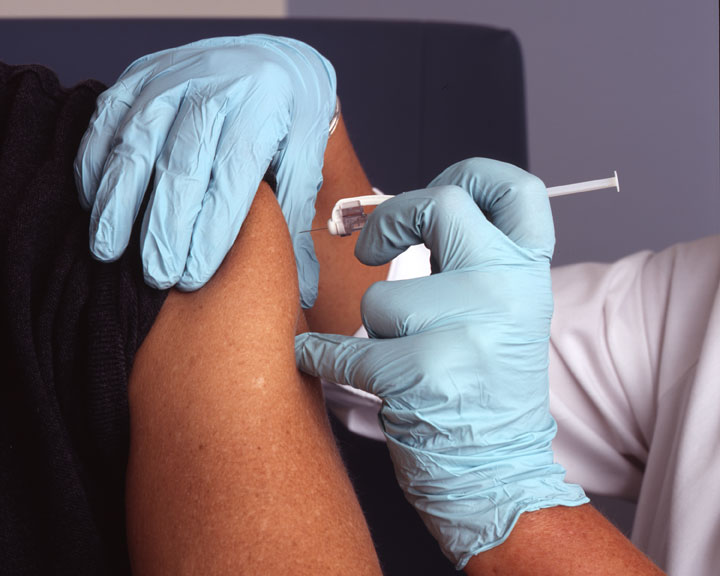
Black teachers: How to recruit them and make them stay

Lessons in higher education: What California can learn

Keeping California public university options open

Superintendents: Well-paid and walking away

The debt to degree connection

College in prison: How earning a degree can lead to a new life

The issue of mandatory vaccinations roiled a legislative hearing in Sacramento on Tuesday for the third time this month, and for the third time, state Senate committee members approved the proposed state law that would restrict exemptions to required school vaccinations.
Senate Bill 277, which would remove the “personal belief exemption” that allows parents to opt out of school vaccination laws, passed the Senate Judiciary Committee by a vote of 5-1 on Tuesday and moves to the Senate Appropriations Committee. The bill previously passed the Senate Health and the Senate Education committees.
About 2.5 percent of California kindergartners held personal belief exemptions to vaccinations in fall 2014. (Check the EdSource Today Vaccination App to look up vaccination rates at your school.) The bill would excuse children from vaccination requirements only if they have a medical exemption.
A three-hour hearing at the Senate Judiciary Committee brought forth hundreds of parents who traveled to Sacramento to testify against the measure, some with young children in tow. Many of the opponents said that passage of the bill would force them to homeschool their unvaccinated children or, if that were not feasible for the family, would deny their children a right to a public education.
“Society based on the rule that each one is a law unto himself would soon be confronted with disorder and anarchy,” wrote the U.S. Supreme Court in 1905 in upholding the right of Cambridge, Massachusetts to require residents to be vaccinated against smallpox.
Hannah-Beth Jackson, D-Santa Barbara, chairwoman of the Senate Judiciary Committee, worked to contain Tuesday’s hearing to a discussion of the legal issues surrounding public health, public education and the provisions of the bill, which was co-authored by state Sen. Richard Pan, D-Sacramento, and state Sen. Ben Allen, D-Santa Monica.
Jackson acknowledged the concerns of parents about how they would educate their unvaccinated children, as well as their “understandable” distrust of pharmaceutical companies.
But she added, “We are very interested in dealing with fact and not fear.”
Mary Holland, director of the Graduate Lawyering Program at New York University, drew a reprimand from Jackson when Holland said the bill would coerce parents into vaccinating their children without free and informed consent, and likened that lack of consent to rape.
“To analogize this to rape is a little bit off,” Jackson said. She asked Holland if any of the legal cases she cited about informed consent involved vaccination. Holland said they did not.
Allen began the hearing by quickly sketching the legal precedent establishing the right of the state to require children to be vaccinated. “The courts, over and over again, have stated that this is an appropriate place for the state to be involved,” he said.
Among the cases Allen mentioned were these key decisions:
Allen noted that the bill would eliminate personal belief exemptions only for students newly entering kindergarten, new to a school district, or entering 7th grade. Current kindergartners, for example, would not be affected.
The bill was introduced after a measles outbreak began in Disneyland in Anaheim last December and infected 134 people in the state, including 57 unvaccinated individuals. On April 17, the California Department of Public Health declared the measles outbreak over because two 21-day incubation periods (42 days) had passed without a new outbreak-related infection.

Legislation that would remove one of the last tests teachers are required to take to earn a credential in California passed the Senate Education Committee.

Part-time instructors, many who work for decades off the tenure track and at a lower pay rate, have been called “apprentices to nowhere.”

A bill to mandate use of the method will not advance in the Legislature this year in the face of teachers union opposition.

Nearly a third of the 930 districts statewide that reported data had a higher rate of chronic absenteeism in 2022-23 than the year before.
Comments (1)
Comments Policy
We welcome your comments. All comments are moderated for civility, relevance and other considerations. Click here for EdSource's Comments Policy.
Reginald Dickerson 9 years ago9 years ago
1. Is there a class action law suit against everyone for the vaccination shots?
2. How can I get help raising the money to start my own place to home school my daughter.